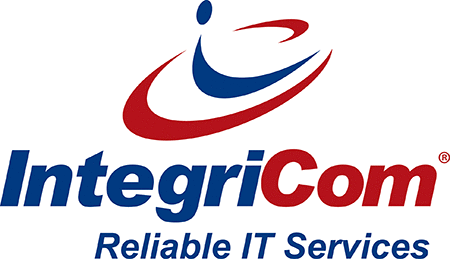Table of Contents
Introduction
Choosing a Managed Service Provider (MSP) can make or break your business so it’s important to choose carefully. This can be an overwhelming process, but by asking the right questions and evaluating your options, you can find an MSP that meets your specific needs and helps your business succeed.
Before you can choose the best option for your business, you should compile a list of MSP interview questions. Luckily for you, we’ve already created one! In this article, we’ll show you exactly what to look for in a managed service provider and provide a few insider tips. We’ll walk you through how to effectively evaluate pricing, contracts, services, processes, data management and security to help you choose the best MSP for your organization. It’s important to have some managed service provider requirements in mind before you vet any MSP option.
Also read: What are Managed IT Services?
Managed Service Provider Pricing

1. What type of pricing structure do you use?
MSPs may use different pricing models, such as flat-rate, tiered or a la carte pricing. You should understand the pricing structure used by your desired MSP to determine the cost-effectiveness of the services they offer.
For example, flat-rate pricing is typically a little cheaper and best for businesses who want predictable IT costs and are on a fixed budget. This option, however, is limited and may not cover more specialized services or a sudden surges in IT demands. A reliable MSP should offer flexible pricing options based on the client’s individual needs.
2. What’s included in the price?
Transparency is key to having a successful and beneficial relationship with any MSP. Before you choose an MSP, ask yourself, how easy is it to find the final cost? Are there any set-up or hidden fees? How close is your initial quote to your final cost? Before you sign the dotted line, know what additional fees you are responsible for in addition to the services you receive.
3. What are my long-term costs?
While it may be tempting to choose an MSP based solely on the lowest price, it’s wise to consider the long-term cost. As your business grows, your MSP should be able to accommodate your changing needs. Consider whether the MSP’s pricing and services can scale with your business over the long term.
Additional Questions About MSP Pricing:
- Is there a minimum contract term, and are there any penalties for early termination?
- Is there a cap on the number of support tickets or hours of support provided?
- Is there a discount for longer-term contracts or larger volumes of services?
- Will I need to purchase additional infrastructure when the MSP works with my business?
Managed Service Provider Contract

1. How flexible is the contract?
Before you sign with any MSP, it is important to understand their level of flexibility. Do they have a one-size-fits-all approach or are they more individually minded? Make sure you know if the service level agreement is negotiable; what abilities you have to terminate the contract; if there is an expiration date or grace period to terminate; what changes you can make to the contract; and how often you can add or remove specific services, etc. Contracts keep both parties accountable and secure. Make sure the MSP has the ability to fit your needs and adapt to potential changes within your organization.
2. What is the onboarding and offboarding process? (If you decide to part ways)
It is helpful to understand how your data will be treated as a client, and, potentially, a previous client. If you choose to go another direction and leave your MSP, you should know how your data will be retrieved and if there are any additional fees associated with this. Will the MSP assist you in transitioning from them as a provider or will you potentially leave behind data.
Additional Questions to Ask About Onboarding/Offboarding:
- How often is the contract renewed?
- Can you provide a comparison detailing the cost of on-premises versus cloud solutions over time?
- Does the contract include monthly and annual payments with capping on yearly rate hikes?
Benefits to Your Organization

1. What is the estimated ROI?
An MSP should demonstrate the ROI of their services by providing metrics and data to back up their claims. They should also provide ongoing support and training to ensure that your organization has necessary IT knowledge to leverage their services.
2. How will this help support my customers and employees?
This is a broad question, but there are many aspects to consider when asking how a specific MSP will benefit your business. You should determine if using the chosen MSP will reduce IT cost for your organization, which in turn could reduce cost for your customers. By outsourcing IT services to an MSP, you should also be able to reduce your internal IT workload. The MSP provides proactive monitoring and support that ensures your IT infrastructure is always running smoothly. This will free up your internal team to focus on other tasks, making them and your customers happier.
Additional Questions to Ask About MSP Benefits:
- How will you help me reduce IT costs?
- How will you improve my company’s efficiency?
- How will using you as our MSP give us a competitive advantage?
About the Managed Service Provider’s Company

1. What experience or expertise do you have in my industry?
You should know if the MSP has worked with businesses similar to yours and whether they have a deep understanding of the unique challenges and opportunities in your industry. It is also wise to learn how long the MSP has been in business and what they personally do to stay competitive and current with new technology developments.
2. How have you helped businesses similar to mine achieve their goals?
By learning more about the MSP’s success stories, you can understand how their services have helped businesses similar to yours grow in their success. The MSP should be able to provide specific examples of how they’ve helped businesses in your industry with challenges such as improving efficiency, reducing costs, or enhancing security.
They should also be able to provide recommendations for how their services can be tailored to meet your specific business goals. A great followup for this question is to ask to contact one of their current or previous clients. Essentially, check their references before you make a commitment.
3. What is your customer service philosophy?
This question gives you direct insight into how they will treat your business after you’ve committed to them. Make sure their customer service philosophy aligns with your own. The MSP should be able to provide details on how they approach customer service, such as their response time for support requests, escalation procedures and their approach to handling customer feedback.
Additional Questions to Ask About the the MSP Company:
- How do you ensure that our team will have a positive working relationship with you?
- How do you train your staff and/or ad-hoc support?
- What percentage of your business gets dedicated to managed services versus other business models?
Services & Processes

1. How does your discovery process work?
The discovery process is a critical step in any MSP engagement, as it helps the MSP understand your specific business needs, goals, and challenges. The MSP should be able to provide details on their approach to discovery, including the types of questions they’ll ask, the documentation they’ll review, and how they’ll use this information to tailor their services to your needs. You should also know beforehand if the MSP offers this assessment before providing projected service fees and if this a separate cost.
2. What is your comprehensive solution process?
This process should be well-defined and documented, and should cover all aspects of their services, from technology implementation to ongoing maintenance and support. You should understand which services are considered out of scope for your chosen MSP and how complex issues are escalated as well.
3. What is the flexibility and scalability of your services?
The MSP should be able to provide details on how they can accommodate changes in your business, such as new technology implementations, changes in business processes, or shifts in business priorities.
4. Is there a service level agreement (SLA)?
An SLA outlines the MSP’s commitments to delivering their services at a certain level of performance. The MSP should be able to provide details on their SLA, including the specific metrics they’ll use to measure performance, the penalties for not meeting SLA targets, and how they’ll report on SLA performance over time.
5. How do you measure and report performance?
The MSP should have a process for measuring and reporting on their performance, as well as your performance as a business. You should know what metrics they use to assess speed, reliability, service availability and other KPIs that are important to your business.
For example, at IntegriCom we consider First Contact Resolution Rate (FCRR), First Level Resolution Rate (FLRR), and the average network uptime performance as a way to measure performance.
6. What compliance frameworks do you support?
If your business operates in a regulated industry, such as health care or finance, you need to ensure that the MSP can support the compliance frameworks that are most relevant to your business. You should know how familiar the MSP is with your specific compliance requirements, which compliance frameworks they support, and how they handle audit trails to show compliance.
Additional Questions to Ask About Services & Processes:
- How is support provided?
- Is there emergency support, and when is it available?
- What are the first, second and third line parameters for escalation?
- Are there any co-management options?
Also Read: Co-Managed IT vs Managed IT: What’s the Difference?
Data Management & Security

1. How do you protect my data?
Ultimately, you need to know that your data will be safe with the MSP you choose. Consider asking about their security measures, who will have access to your data, the specific methods they use to protect data, if competitors will have access to your data, if they use a multi-tenant environment, if your data will be isolated from other clients’ data, etc.. Understanding how your data will be stored and protected is essential in choosing the right MSP.
2. What will happen to my data if X,Y, or Z happens?
Before you commit to an MSP, know their disaster recovery plan. What systems do they have in place to protect your data when there is a city-wide power outage or an issue with their cloud infrastructure. Ask about their data recovery and back-up plans, how they project against security breaches and threats and who is responsible for your data.
Additional Questions to Ask About Data Management & Security:
- What happens to my data if you (the MSP) goes out of business or merges with another firm?
- Do you run your services operations through 3rd party hosting providers or data centers?
- What redundancy gets built into the solution?
Also Read: Stay ahead of the hackers with Cybersecurity Consulting
Summary
Choosing the right MSP can determine the success of your business. To make the decision process easier, it is wise to have a checklist that can help you evaluate MSP candidates – like IntegriCom. Schedule a consultation with us and see how we can help.


